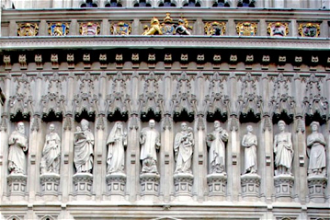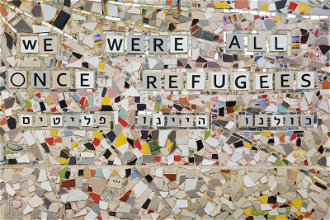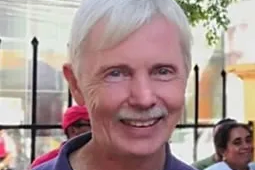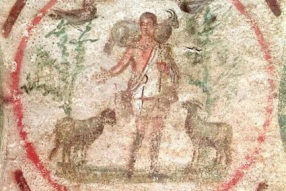Sunday Reflection with Fr Terry Tastard - 9 January 2011
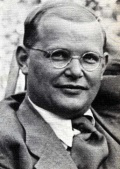
Dietrich Bonhoeffer
On the 7th July 1939 the German theologian Dietrich Bonhoeffer boarded a liner in New York that would carry him back to Germany and almost certain death at the hands of Hitler. He did not have to return to Germany. He had arrived in the United States only a month previously, a refugee from the Nazis. As a leading Lutheran pastor he had been striving to persuade the Protestant churches to oppose Hitler. When he was offered a post in New York it seemed the ideal solution, because it would take him away from danger.
But in New York he realized that he simply had to return. For better or for worse, he would share the fate of the German people, he would stand alongside them and be part of them. On his return he encouraged Christian resistance to the Nazis who eventually executed him in spring 1945.
Bonhoeffer's return was a most profound gesture of solidarity. He put himself into a situation where there was great sin, great suffering and great danger, because he wanted to be among the people to help them. In this he was surely true to his master, Jesus Christ, who, as we hear today, went down into the waters of baptism. John the Baptiser tried to dissuade him: 'It is I who need baptism from you, and yet you come to me!' (Matt. 3.14). As the sinless one Jesus had no need to enter these waters. But remember who had been in those waters before him. We read elsewhere that they included rough soldiers who were used to extortion, crooked tax collectors, and streams of desperate people from Jerusalem and its region. As they came to baptism at the hands of John they confessed their sinfulness (Luke 3.10-14; Mark 1.5).
As the sinless one, Jesus did not need to be baptized. But by going down into those waters he shows his solidarity with all lost and sinful people, he literally stands alongside them in the waters of initiation and dedicates the rest of his life to them. In fact, before long he would be criticized by the righteous people for being the friend of sinners (Matt. 11.19).
Jesus could not carry out this ministry at arm's length. He had to be among the people to encourage them, to give them hope, to teach them about the Father's inexhaustible love. In doing this he was fulfilling the messianic hope of the Jewish people so beautifully expressed in our first reading from Isaiah, where the chosen one is endowed with the spirit, formed by God and appointed to bring hope and new life to the world (Isa. 42.1-4, 6-7). But as Isaiah goes on to make clear, the anointed one cannot fulfil this calling without being a suffering servant. To enter into the world as Christ has done is to be open to all the sorrow of the world, sorrow that will become his own cross when, fulfilling his ministry of solidarity with the people of the world, he hoists their sins on his shoulders when he carries the cross.
Fr Terry is Parish Priest at Holy Trinity Catholic Church in Brook Green, west London. His latest book: Ronald Knox and English Catholicism is published by Gracewing at £12.99 and is available on Amazon, on ICN's front page. To read Sr Gemma Simmonds' review on ICN see: www.indcatholicnews.com/news.php?viewStory=16114



